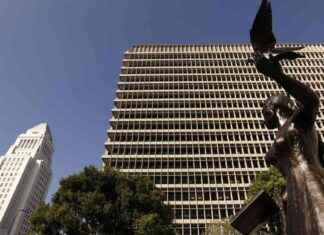Gazprom will deliver even less gas to Germany through Nord Stream 1 from Wednesday, the Russian state-owned company announced on Monday on its Telegram channel. Gazprom is thus implementing the further cutbacks in deliveries already announced by Russian President Vladimir Putin. As of 7 a.m. on Wednesday, only 33 million cubic meters of gas per day are expected to flow through the pipeline. This corresponds to a significant reduction compared to the deliveries, which were already reduced to 40 percent of the maximum capacity and which Gazprom resumed after the end of regular maintenance last week.
33 million cubic meters of gas would correspond to another halving of previous deliveries. Gazprom had already reduced the gas volume from 167 to around 67 million cubic meters, but if the renewed reduction were to be implemented on Wednesday, only around 20 percent of Nord Stream 1’s capacity would be used.
Gazprom justified the step with the end of the maintenance interval for another gas turbine in the compressor station near St. Petersburg. The operation of another gas turbine had to be stopped there. The Federal Government considers this line of argument to be false. A turbine serviced in Canada is currently on its way back to Russia via Germany. However, one has the impression that the Russians would not want them back at all, Economics Minister Robert Habeck (Greens) said last week.
In Tehran last week, Putin warned against a further cut in gas supplies and shifted the responsibility to the West. He had linked this threat to the suggestion that gas could instead be delivered through the completed but not yet commissioned Nord Stream 2 pipeline. In German government circles, however, approval of the second pipeline is ruled out.
The renewed reduction in the delivery volume increases the probability that there will be a gas shortage in Germany in winter, i.e. there will not be enough gas to fully supply households and industry. It was only on Monday afternoon that the Federal Network Agency was cautiously optimistic before announcing that deliveries would be reduced again. In the daily situation report, there was only talk of a “slightly tense” instead of a “tense” situation. A few hours later, the Russian company responded by announcing the throttling.






